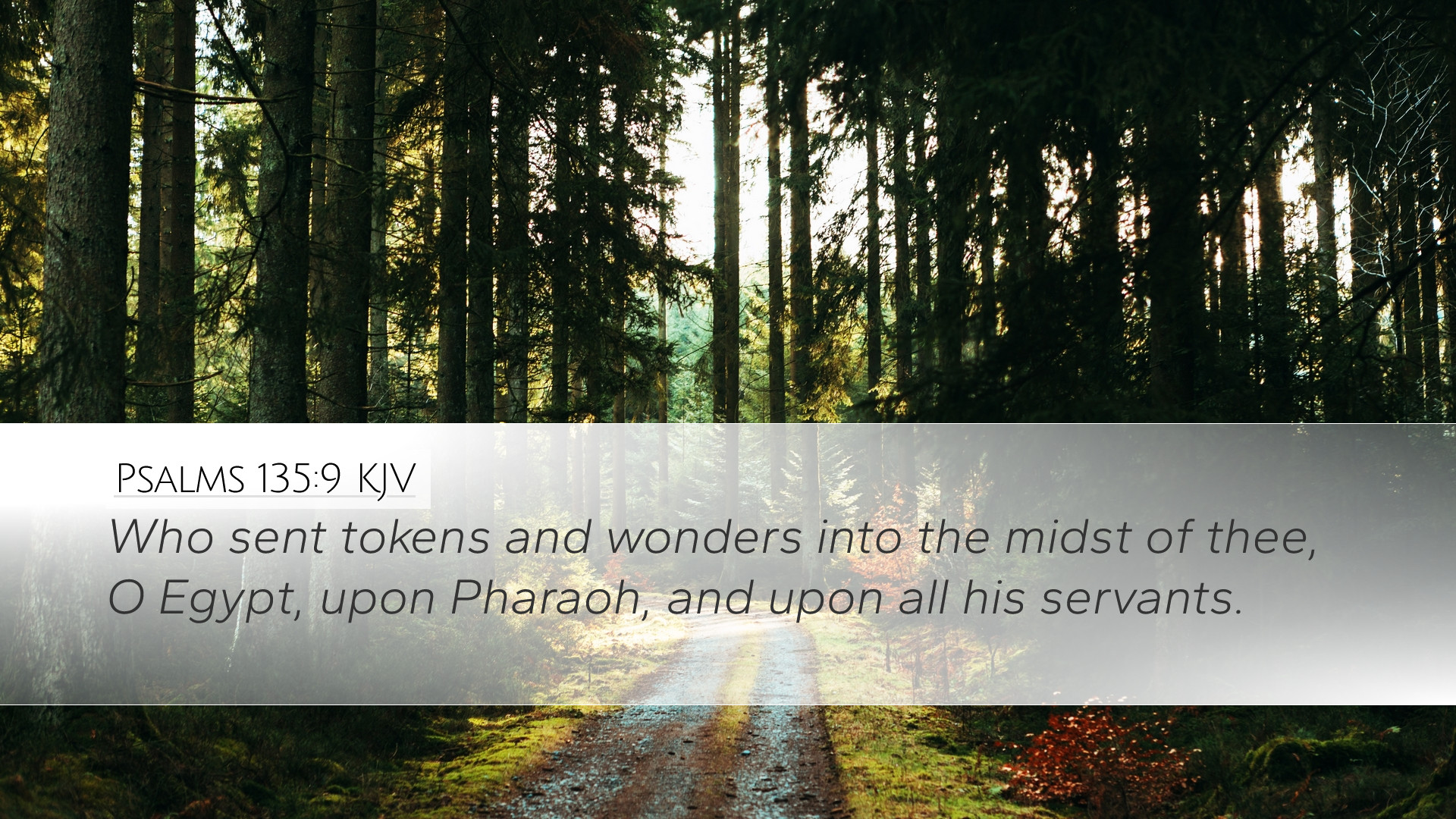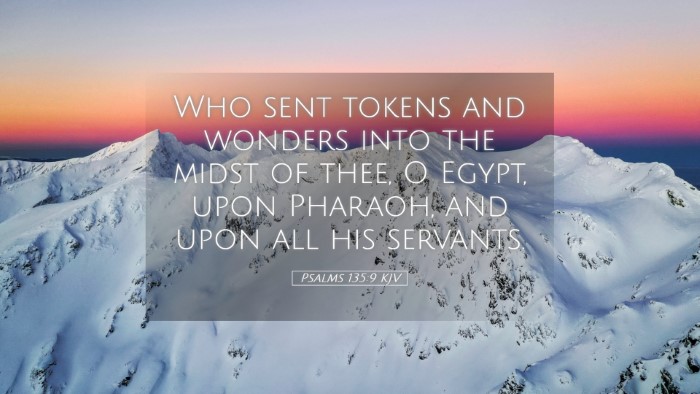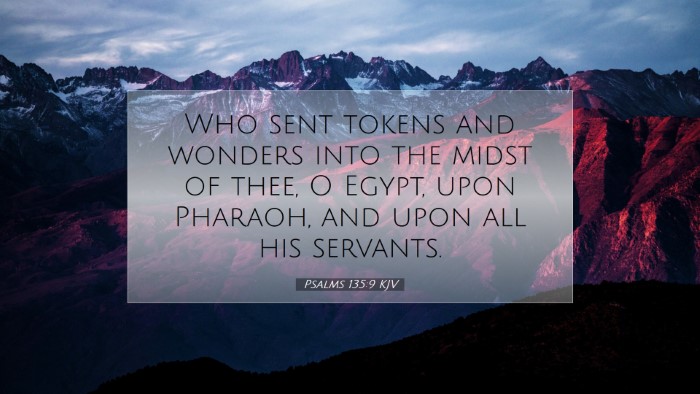Psalms 135:9 - Commentary and Insights
Psalms 135:9 states: "Who sent tokens and wonders into the midst of thee, O Egypt, upon Pharaoh, and upon all his servants."
This verse is instrumental in understanding God’s sovereignty and His powers displayed through historical events, particularly in the context of Israel's deliverance from Egypt. Below, we provide a comprehensive analysis drawing from various public domain commentaries to explore the significance of this verse.
Contextual Background
The Book of Psalms serves as both spiritual poetry and liturgical material, often reflecting the historical journey of Israel, their struggles, and triumphs. This specific Psalm falls under the category of praise, celebrating God's relationship with His people and His control over the nations.
Commentary from Matthew Henry
Matthew Henry elaborates on the idea of 'tokens and wonders' as a testament to God’s miraculous works. He emphasizes that these wonders were not only acts of divine power but also meant to exhibit God's mercy towards His chosen people:
- Divine Intervention: Henry points out that God's actions in Egypt were drastically significant as they directly led to the liberation of the Israelites. He articulates that these wonders were multifaceted, serving as both signs of judgment against Egypt and symbols of hope for Israel.
- Pharaoh's Hardness: Henry remarks on Pharaoh’s obstinacy which God used to demonstrate His sovereignty. Pharaoh’s refusal to let the Israelites go, despite the plagues, illustrates how God’s hand was behind the scenes orchestrating the events for a greater purpose.
Insights from Albert Barnes
Albert Barnes emphasizes the historical narrative associated with this verse. He describes the 'tokens and wonders' as the ten plagues that struck Egypt:
- Evidence of God’s Power: Barnes explains that these plagues were designed to demonstrate God’s omnipotence, challenging both Pharaoh's authority and the deities of Egypt. The phrase 'in the midst of thee, O Egypt' highlights the public and evident nature of these miracles.
- Spiritual Significance: According to Barnes, these historical events are not just accounts of past occurrences; they act as spiritual symbols of God's redemptive work in the lives of believers. Each plague can be seen as pointing to deeper truths about God’s deliverance from sin and oppression.
Contributions from Adam Clarke
Adam Clarke provides additional layers of understanding regarding the implications of God's wonders in Egypt:
- Nature of the Signs: Clarke explains that these wonders, such as turning water into blood and the plague of locusts, were manifestations of God's judgment on both Pharaoh and the Egyptian people, who resisted His will.
- Encouragement for Believers: He highlights that these historical accounts serve to encourage believers, reminding them of God’s faithfulness in times of distress. Clarke’s perspective offers a broader theological implication, linking the past actions of God to the present faith of the community.
Theological Significance
When delving deeper into the theological implications of Psalms 135:9, several key themes emerge:
- God's Sovereignty: The events in Egypt illustrate not just God’s power, but His absolute sovereignty over nations and kings. This sovereignty is a source of comfort for believers facing oppression.
- Signs and Wonders as Revelation: God’s acts serve as revelations of His character and intentions toward humanity, establishing a foundation for faith and obedience.
- Hope and Deliverance: The faithful can draw strength from the deliverance experiences of the Israelites, reminding them that God is attentive to their struggles and capable of bringing them out of their own ‘Egypts’.
Conclusion
Psalms 135:9 encapsulates critical elements of the biblical narrative concerning God’s interaction with Egypt and Israel. By studying this verse within the context provided by Matthew Henry, Albert Barnes, and Adam Clarke, we glean insights that are relevant for contemporary believers:
- Understanding the historical context strengthens our faith in God’s enduring power and efficacy.
- Recognizing that the miraculous acts of God are not just past events, but serve as a model for God’s current involvement in our lives.
- Encouraging ministries and individuals to reflect on their own 'exits from Egypt' as testimonies of God’s faithfulness and power.
Ultimately, Psalms 135:9 serves as a reminder of God's unchanging nature and His commitment to His people throughout the ages.


